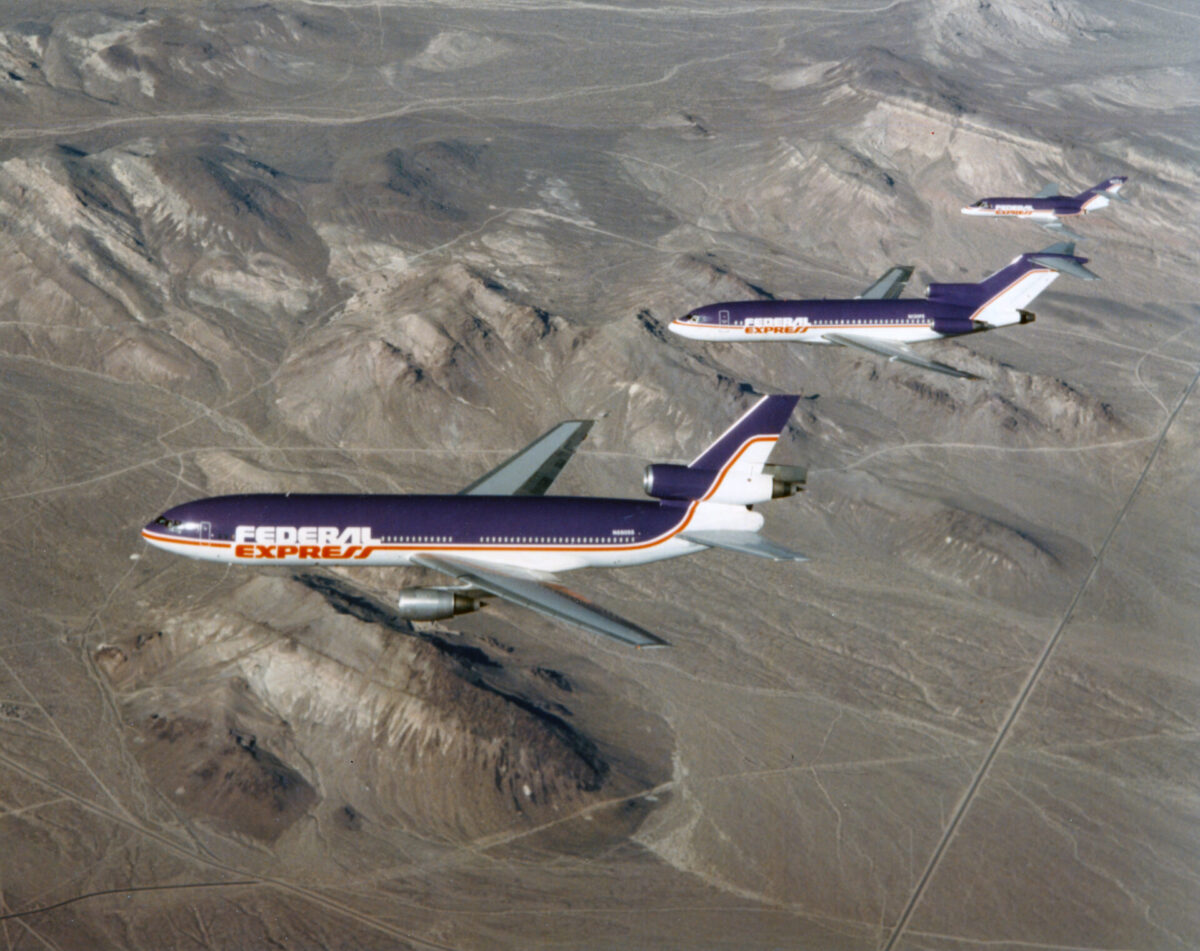FedEx Express, the airline subsidiary of US-based FedEx Corporation, the world’s largest express transportation company, is celebrating the 40th anniversary of its inaugural scheduled transatlantic service. On June 15, 1985, a fleet of seven Federal Express Boeing 727s took to the skies, establishing air links between New York, London, and Brussels for the first time, in what the company describes as “a key moment in redefining global commerce and connectivity.”
14 years after the company first began operations from its first base at Little Rock, Arkansas, FedEx established regular freight services between the US and the three major cities in Western Europe.
“The establishment of FedEx’s transatlantic route wasn’t just about moving packages; it was about laying the groundwork for an era of unprecedented economic integration,” said a FedEx statement. “Faxes were phased out, PCs appeared, and air freight of everything from pharmaceuticals to machine parts, and perishable foods flourished. FedEx’s rise from humble beginnings to industry titan is nothing short of remarkable. Back in 1973, FedEx kicked off operations delivering 186 packages. Fast forward to today, FedEx stands strong as a global network handling over 17 million shipments every single day.”
Operationally, FedEx’s footprint has expanded dramatically. From initially serving just 25 US cities using a fleet of 14 Dassault Falcon jets to deliver 186 packages on its first night of operations, FedEx now connects more than 220 countries and territories, linking continents and facilitating a level of overnight logistics to global commerce. Having started with just 389 employees, the company now employs a global team of over 500,000 staff.
“In 1985, the concept of rapid, reliable transatlantic shipping was just coming to the fore, as groundbreaking as the first commercial internet connections that would soon follow,” said Wouter Roels, regional president of FedEx Europe. “Our commitment to connecting Europe and North America then, and now, has played a crucial role in the evolution of modern supply chains. Just as personal computers began to revolutionise offices, the FedEx effect established the physical infrastructure to allow the global trade we all rely on today to flourish.”
FedEx’s integrated air and road network across Europe has expanded significantly since 1985, reflecting to a large extent how global trade has evolved. With two air freight hubs and 27 road hubs connecting 45 countries daily, FedEx now sorts an average of two million packages daily across over 550 pick-up and delivery stations in Europe.
Transatlantic capabilities
According to the company, “FedEx’s next-day transatlantic capabilities connect 90% of Europe to most US business centres, offering customers choice in delivery times for global shipments, and providing agility for their own business operations. European e-commerce traders particularly benefit from day-definite international shipping services, balancing speed with attractive prices, and the offer of a dedicated regional freight service across 22 countries for less urgent packages.”
“The transatlantic trade relationship continues to be a cornerstone of the global economy,” Roels added. “While the dynamics have certainly evolved – from the rise of e-commerce to the focus on sustainable logistics – our mission remains the same: to provide certainty in an uncertain world. We are proud to have been a part of European trade for four decades and look forward to facilitating ever greater growth and innovation in the years to come.”
FedEx has not only become one of the world’s largest express transportation companies, but also one of the world’s largest airlines. According to ch-aviation, the carrier’s fleet currently consists of 420 aircraft with both jet and turboprop aircraft employed. It still flies almost 60 Boeing 757 freighters, making it one of the only carriers to still fly the venerable twinjet in such numbers, and while it still has ten remaining McDonnell Douglas MD11 tri-jets in service, these are the next aircraft to be gradually phased out from regular cargo operations by the airline, to be replaced by Boeing 777Fs.





